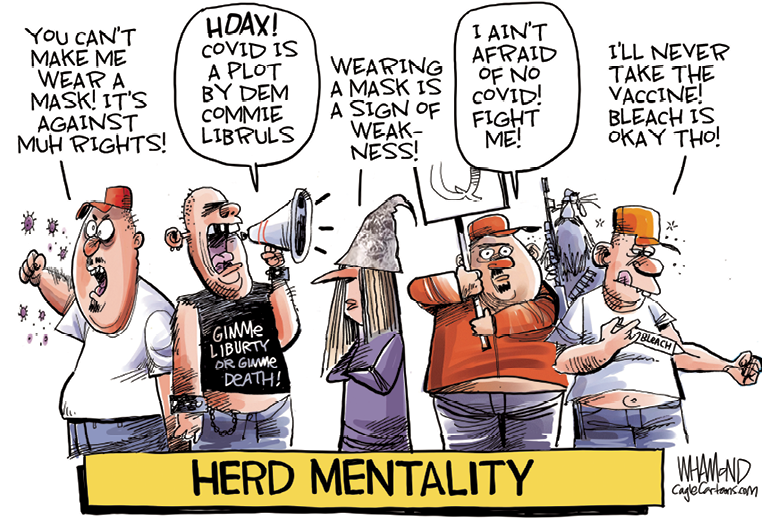
Paved or gravel, trail manners matter
I noted last week’s letter regarding the Steve Bauer trail, biking, walking, and the speeding cars in the neighbourhood. I'd like to add one more notation. Now that the Steve Bauer trail is being paved from Port Robinson to just south of Merritt, we could be in for a different type of speeding.
When my husband and I ride our bikes along the trail we are constantly affected by the rudeness and inconsiderate riding of some “professional” bikers that we encounter along the way. I'm being sarcastic, of course, because professional bikers wouldn't be so careless.
While we are out doing our morning ride for exercise, more often than not there is some very rude and uncaring rider that can peddle ten times our speed and they go whizzing by us at a speed that should be clocked and fined. I know that the trail is for everyone to use, but when we are on it there are many walkers, joggers, and people pushing strollers, and all of these folks are in danger of being hurt. The cyclist is long gone by the time we realize that he just went by and if my balance is any indication of others on their bikes, the wind he creates would knock us over. I don't know if he is a courier or a student or someone just late for work, but he always has a backpack on and a helmet so we never see his face anyway.
I just think that this is the sort of rider we don't want on the trail, whether it is gravel or paved. He has enough skill to be riding on the roads. Now that the trail is being worked on he has to use the roads but I'm betting that he will be the first to test it when it is complete. There are times when I wish he would hit a bump and fall, but he rides too fast for that to happen. I have fallen off my bike before and I don't wish to be knocked over by an idiot who doesn't care.
The trail is for enjoying, not for speeding on. I hope he reads this and takes note of what people think of his attitude.
J. Vlym Fonthill

Hello again, Voice readers! I truly did not expect to be back on your pages again so soon, but felt a complimentary retort to Mr. Alan Bown was appropriate after he kindly bestowed upon me the honorific title of “a letter writer” [“Fear, faith and COVID-19,” Letters, Sept. 16, p.5].
Embracing his clarion call for “action,” I reaffirmed the first listed meaning of faith in the dictionary—one which was conveniently and inexplicably omitted in Mr. Bown’s letter— namely, “complete trust or confidence in someone or something.” Precisely as I meant, leaving it to the individual reader to determine what constitutes their unique and personal faith. As Mr. Bown only knows me as “a letter writer,” he would have no verification I have an ecclesiastical background and therefore would be incorrect in his “extravagant unsubstantiated” inference that the religious definition was solely intended.
At the risk of seeming to be an ultracrepidarian, however, it is my personal belief that the underpinnings of society as we know them and the personal freedoms and liberties we have so greatly enjoyed are being severely tested, and are indeed at risk from the current COVID-19 pandemic. If I can help instill faith in my fellow mankind during this time of acute crisis I will strive to continue to do so.
Theron Jordan Whistler, BC
Editor’s note: No, we didn’t know the word either. An “ultracrepidarian” is someone who expresses an opinion about matters beyond the scope of their knowledge or expertise. Think Cliff the mailman on Cheers. Or, more locally…. Hmm. Never mind!
Reaction to council asking for less work, Ron Kore for in-person meetings
Apparently Kore still doesn’t quite understand how this illness transmits. One would think after having it himself and a fellow councillor dying that this supposedly intelligent guy would “get” it.
Why on earth would he still be pushing for face-to -face meetings?
He, clearly, learned nothing from his experiences of last year.
I guess this is what happens when someone doesn’t have to face any consequences for their own actions.
Becky Derose Via Facebook
Too much workload and not enough time for councillors? It doesn't give council enough time to organize and attack the Mayor.
Rod Scapillati Via Facebook
Kore should pay attention to what's going on, Bloc Q in isolation because one staffer tested positive, the conservatives in isolation because one staffer tested positive. What part of “this is highly infectious and airborne” did he not understand? He needs to stop burying his head in the salad bar. I'm sure Doug Ford would ask if he is a few fries short of a happy meal.
Barbara Stramm Via Facebook
COMMENTARY | Health Coalitions' joint statement on COVID-19
The COVID-19 pandemic has laid bare the extent to which our individual health is dependent on the health of everyone in our community. Public healthcare is our best defence against this crisis and others like it. However, our ability to endure crises and care for each other has been eroded through decades of austerity budgets, privatization and inadequate planning. Even during “normal times” the health care system is at capacity.
While health care workers and communities are struggling to support each other, corporate interests are trying to profit. This must be resisted. The solution is not privatization. Instead, we should be strengthening universal health care and our collective ability to care for one another.
As governments ramp up efforts to address the current crisis, Health Coalitions across Canada are calling for them to resist privatization and to uphold the foundational principles of equity and compassion that underlie our public health care system.
We call upon all levels of government to work together to reclaim and increase the capacity of our public health care system to:
Address existing health inequities by removing barriers to access and scaling up services for marginalized communities
Restore capacity in our public hospitals by reopening facilities and beds that have been closed due to funding cuts and downsizing, and expand capacity under public and non-profit hospital governance
Improve supports for health care workers, including by adopting the strongest protective standards, enhancing recruitment and retention, and giving workers the resources and equipment they need
Ensure that all services are available free of charge and delivered publicly, including testing, vaccination, hospital stays and telehealth.
Now more than ever, we need a universal, public health care system that puts patients before profits, that prioritizes the health of everyone living in Canada and that honours and respects the principles of the Canada Health Act.
We cannot allow this crisis to be used to dismantle universal, public health care in Canada. Instead, we must renew our commitment to a system based not on profit, but instead on the shared belief that health care is a human right.
Alternatives North BC Health Coalition Canadian Health Coalition Coalition solidarité santé Friends of Medicare Health Coalition of Newfoundland & Labrador Manitoba Health Coalition Nova Scotia Health Coalition Ontario Health Coalition PEI Health Coalition
COMMENTARY | Peggy Brekveld
Support for women in agriculture encourages equity
From an historical perspective, women have always played a vital role in agriculture, but it was often undocumented, unacknowledged and unquantified. Each woman is strong and influential in their own right. These women encourage us in their leadership, actions and language.
In your community, these influential women might be your mother, sister, daughter, neighbour, colleague, or partner. On the OFA board, their names are Jackie, Debra, Tracey, Teresa, and soon to be Jennifer. In the past, they included Melissa, Eleanor and Bette Jean. I am proud to have worked with these women on the organization’s board of directors.
This demonstrates how the landscape of the Ontario agriculture industry has diversified to include women. Supporting evidence of this is that while the number of farms in Ontario decreased by 13% from 2006 to 2016, the number of farms with female operators increased by 12%.
In the past, the agriculture sector has often been viewed as a male-dominated industry, which lacked female representation and rarely showcased women in leadership roles. In a 2015 Canadian Agricultural Human Resource Council (CAHRC) study, only eight out of the 65 Canadian agricultural associations surveyed had a woman as their board chair or president, and only 28% had at least one woman on their board. These statistics can be daunting. Although Ontario’s agriculture industry has evolved to include the representation and inclusion of women, there continues to be a lot of work to do to eliminate gender stereotypes and achieve equity. OFA conducted a survey in January 2020 where 67% of female farmer respondents indicated that they had been disrespected because of their gender, compared to just 2% of their male counterparts.
Women in agriculture continue to face more barriers than their male counterparts, both in their careers and their personal lives, as a result of gender roles. The CAHRC study found that women identified barriers to advancing in the field of agriculture (41%) and barriers balancing career and family responsibilities (16%). Another 16% spoke of the “old boys club” and 13% found there was a lack of female role models in leadership positions. Additional barriers noted by the women included access to childcare, gendered roles and responsibilities, different levels of on and off farm expectations, access to resources and off-farm employment.
Female farming operations are also smaller scale than male-owned operations and gross less profit. In 2017-18, OFA participated in an Ontario Ministry of Agriculture, Food and Rural Affairs (OMAFRA) and University of Guelph research study. Female-operated farms on average tended to be smaller acreage (132 acres), compared to 287 acres for male-operated farms. With 57% of female-operated farms generating less than $25,000 in gross farm receipts, there is more to be done to support female farmers with funding, training, and support services. However, what the numbers fail to illustrate is the passion for farming that women in agriculture possess. It drives their success in a way that defies the statistics.
There are programs and initiatives that aim to encourage female involvement in agriculture. In 2019, to address the gender disparity, Farm Credit Canada (FCC) developed the Women Entrepreneur Program to provide support for female entrepreneurs with a commitment of $500 million over 3 years. FCC has also developed a resource page to support women searching for programs, funding and resources.
Additionally, in 2013 The Ag Women’s Network (AWN) was created. The AWN is a volunteer non-profit association and was created to cultivate and connect leaders through the empowerment of women. The AWN Mentorship Program receives sponsorship support from FCC to provide a unique opportunity for women – from any aspect of agriculture or career stage – to connect in a mentoring partnership. Also, programs such as the Influential Women in Canadian Agriculture highlight role models for the next generation across all fields of farming.
Now, my proposal to all of you, is to find a woman in farming that you admire, across the table, online, or maybe even in the mirror. Tell them, “You’re amazing, and farming wouldn’t be the same without you. You help grow food for the world and you should be proud of all that you do. You’ve got this. You inspire me. Thank you for all that you do for Ontario agriculture.”
Our industry has an important role to play in supporting equity, diversity and inclusion in our workplaces, our boardrooms, our governments and in our society. We are stronger and more valuable when everyone has a voice at the table. ◆
Peggy Brekveld is Vice President of the Ontario Federation of Agriculture
PELHAM AND COVID-19 | Mayor Marvin Junkin
Extension of mandatory masks the right vote—for now
At last Thursday night’s Regional Council meeting, councillors voted to extend the Region-wide bylaw making the wearing of facial masks mandatory when residents are inside a public building, or when social distancing is not possible. The bylaw was extended to April 1, 2021. The rational for an extension this long was that this would take the bylaw through the flu season, and it is believed that with the increased confinement everyone experiences during the winter months, COVID-19 infections could rise.
There were a number of councillors, I was one of them, that did not want to extend the bylaw that far into the future. Staff pointed out that many area Regions had adopted the April 1 date, and if the Public Health Unit deemed that the masks were no longer needed, say in February or March, we could at that time rescind the bylaw. When called, the vote was roughly 85% in favour with yours truly being one to vote in favour of extending.
On Friday, also at Region, Regional Chair Jim Bradley and the mayors of all 12 lower-tier municipalities signed a declaration making Niagara a member of the Coalition of Inclusive Municipalities that want to improve their policies against racism, discrimination, exclusion, and intolerance. Niagara now joins 82 other municipalities across Canada that are working to advance initiatives which improve their practices to promote social inclusion, establish policies to eradicate all forms of racism and discrimination, and promote human rights and diversity. In this day and age with the Ontario Human Rights Code in place, I dare say most of these items are already covered, but it never hurts to have a re-affirmation of their policies stated. They should indeed be included in all government policies. ◆


